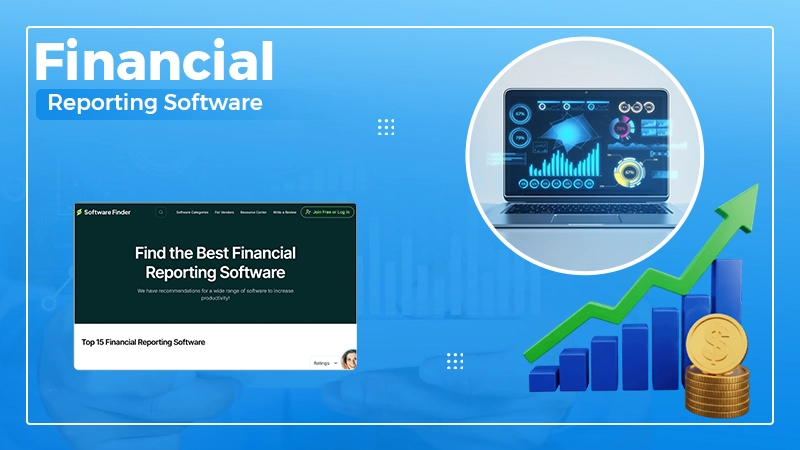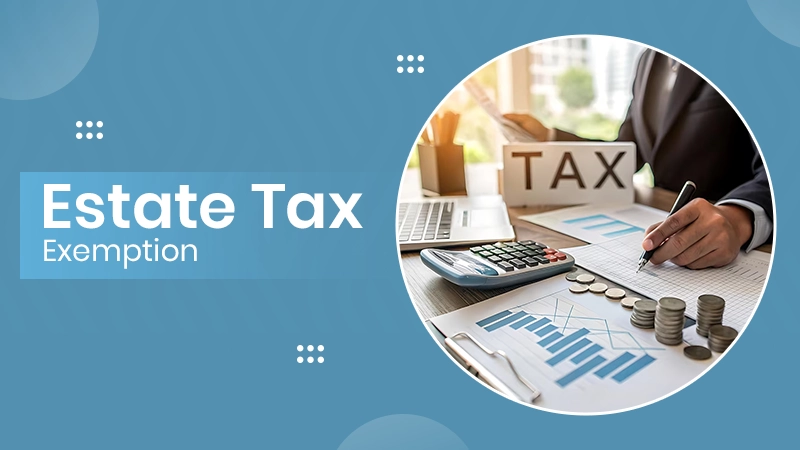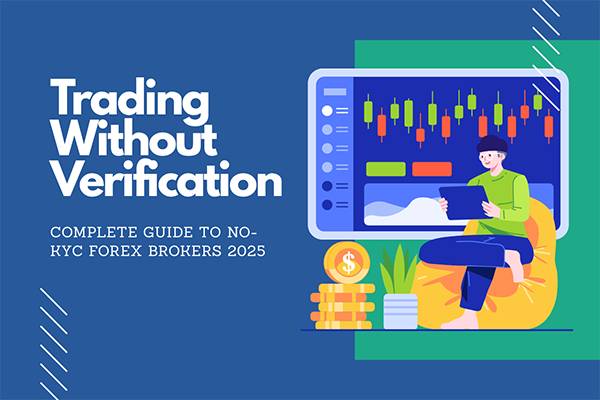
The traditional financial system has long operated on a foundation of identification and verification. Yet in recent years, a significant shift has occurred as traders seek alternatives that offer greater privacy and fewer barriers to entry.
Privacy concerns, faster market access, and various personal reasons drive some traders to seek out forex brokers without KYC requirements. The regulatory environment has changed considerably over the past years, creating a complex landscape for those who prefer to maintain their financial privacy.
However, it can be risky to simply trust any forex broker without KYC. There are things you should be aware of before choosing this alternative trading path. This guide examines what traders should know about operating in the forex market without completing standard identity verification processes in 2025.
What Is KYC, and Why Do Brokers Require It?
KYC (Know Your Customer) refers to the verification procedures financial institutions use to confirm customer identities. Standard KYC processes require:
- Government-issued photo ID
- Proof of address (utility bills, bank statements)
- Sometimes, additional documentation, like financial statements to prove the source of funds.
Traditional brokers implement these requirements to:
- Prevent money laundering
- Combat terrorism financing
- Reduce fraud
- Comply with local financial regulations.
Most regulated brokers in major jurisdictions must follow strict compliance guidelines that mandate customer verification. However, this creates friction in the onboarding process, which some traders prefer to avoid.
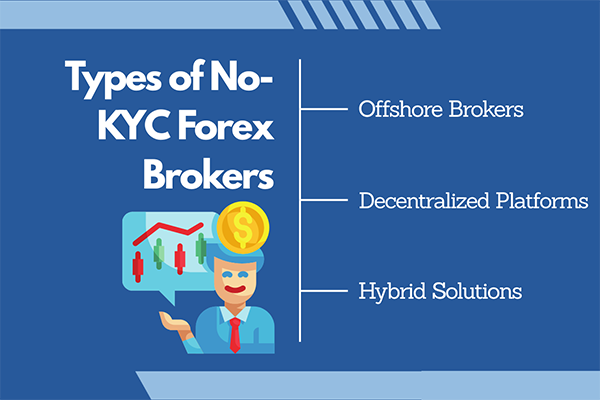
Types of No-KYC Forex Brokers
Not all brokers without ID verification operate the same way. Here’s a breakdown of the main categories you’ll encounter in 2025:
Offshore Brokers
These operate from jurisdictions with minimal regulatory oversight. They typically:
- Register in countries with relaxed financial regulations, such as those determined as high-risk by the Financial Action Task Force
- Offer higher leverage (sometimes unlimited)
- Provide services to clients from restricted regions
- Have simpler registration processes.
While they offer privacy advantages, offshore brokers often come with increased risk of fund security issues.
Decentralized Platforms
Blockchain-based trading platforms represent the newest category of forex brokers. These platforms:
- Use smart contracts to facilitate trades
- Allow trading with cryptocurrencies
- Operate without a central authority
- Provide pseudonymous account creation.
The technology has improved dramatically over the last decade, with several platforms now offering forex pairs alongside crypto trading.
Hybrid Solutions
Some brokers take a middle-ground approach by:
- Requiring minimal verification (email only)
- Implementing verification thresholds (only for withdrawals above certain amounts)
- Using alternative verification methods that don’t require ID
- Offering tiered access based on verification level.
This approach gives traders flexibility while providing some level of security.
Legal Considerations When Using No-KYC Forex Brokers
Trading without verification exists in a complex legal territory that varies by jurisdiction. Consider these key points:
Personal Legal Exposure
In some countries, citizens are legally required to:
- Report all trading activity regardless of broker type
- Pay taxes on trading profits
- Disclose foreign financial accounts.
Failure to comply can result in significant penalties, even if the broker doesn’t require verification.
Regulatory Jurisdiction Matters
The legal status of brokers without ID verification depends on the level of control that a given jurisdiction holds over the traders’ activities and the strictness of licensing requirements for brokers. We can broadly categorize the regulation level and associated risks as follows:
| Jurisdiction Type | Typical Approach to No-KYC Trading | Risk Level |
| Strict Regulatory | Prohibited or heavily restricted | High |
| Moderate Oversight | Gray area with some exceptions | Medium |
| Minimal Regulation | Often permitted with limitations | Lower |
Your location and the broker’s location both factor into the legal equation.
Changing Regulatory Environment
The regulatory landscape continues to evolve. Recent developments include:
- Increased international cooperation in tracking unregulated trading
- New frameworks for digital asset trading
- Stricter enforcement against unregistered brokers
- Expanded definition of regulated financial activities.
Staying informed about these changes is crucial for anyone using no-KYC forex brokers.
Advantages of Trading Without KYC
There are several potential benefits to choosing brokers that don’t require identity verification:
Privacy Protection
Trading without ID verification allows you to:
- Keep personal information private
- Reduce exposure to data breaches
- Maintain financial privacy
- Limit digital footprint.
For privacy-conscious traders, this remains the primary motivation.
Faster Onboarding
The verification process at traditional brokers can take:
- 1-3 days for basic verification
- Up to 2 weeks for enhanced due diligence
- Additional time for international clients.
Brokers without ID verification typically allow immediate trading after registration.
Access for Excluded Regions
Some traders live in countries where:
- Major brokers don’t accept clients
- Local options are limited or of poor quality
- Financial restrictions limit international transfers
- Trading certain instruments is restricted.
No-KYC platforms can provide market access in these situations.
Simplified Withdrawals
Many traders appreciate:
- No proof of source of funds requirements
- Faster withdrawal processing
- Fewer verification steps for large withdrawals
- More withdrawal method options.
This creates a smoother overall experience for frequent traders.
Risks and Drawbacks of No-KYC Trading
Despite the advantages, significant risks exist when using forex brokers without verification:
Security Concerns
Without regulatory oversight, traders face an increased risk of:
- Broker insolvency without recourse
- Funds being frozen arbitrarily
- Platform manipulation or technical “glitches”
- Difficulty recovering funds in disputes.
The lack of regulatory protection means you’re largely on your own if problems arise.
Limited Legal Recourse
When using no-KYC forex brokers, you typically:
- Can’t file complaints with financial regulators
- Have limited options for dispute resolution
- Face challenges in proving ownership of accounts
- May encounter jurisdictional issues in legal cases.
These limitations can become serious if significant funds are involved.
Potential for Market Manipulation
Unregulated platforms may engage in:
- Price manipulation during volatile periods
- Artificial slippage on profitable trades
- Stop hunting to trigger loss orders
- Requoting or delayed executions.
Without regulatory standards, trading conditions can be inconsistent. There’s no way to prove that the operator works fairly.
Banking Challenges
Using a forex broker without KYC often leads to:
- Difficulty moving funds between traditional banks and trading accounts
- Increased scrutiny of larger transactions
- Risk of account freezes during compliance reviews
- Limited deposit and withdrawal options.
These friction points can complicate your trading operations.
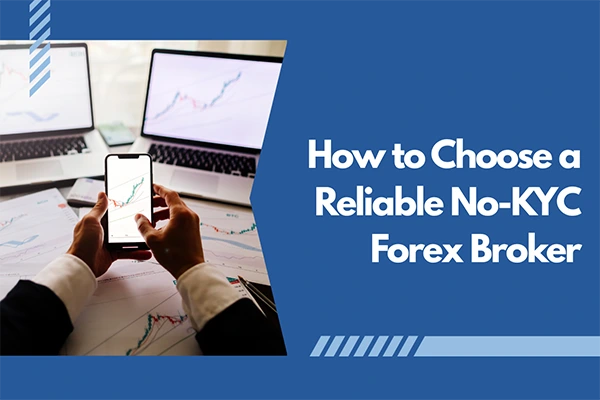
How to Choose a Reliable No-KYC Forex Broker
If you decide to proceed with no-KYC brokers, thorough research is essential. Focus on these factors:
Operating History and Reputation
Prioritize platforms that have:
- Been operational for 3+ years
- Established community presence
- Transparent ownership structure
- Consistent track record of withdrawals.
Online forums and community feedback are your best resources for this information.
Trading Conditions Assessment
Examine the practical aspects of trading, including:
- Spread competitiveness compared to regulated alternatives
- Execution quality and speed
- Available instruments and markets
- Platform stability during high volatility.
Test accounts with small deposits before committing significant capital. If the platform offers a demo account, you can try it out first, but it’s best to prove the reliability of the broker with a small amount of real funds. In the worst cases, brokers can only manipulate real-money trading, but the demo mode functions as it should. Losing a couple of dollars at the beginning due to potential manipulation is better than losing larger sums due to unfair conditions later on.
Security Measures
Look for brokers implementing:
- Cold storage for client funds (for crypto-based platforms)
- Two-factor authentication
- IP logging and suspicious activity monitoring
- Regular security audits.
These indicate a more professional operation despite the lack of KYC.
Withdrawal Testing
Before serious trading, verify that:
- Small withdrawals process as promised
- Documented withdrawal procedures are followed
- No sudden “verification” requirements appear
- Processing times match advertised timeframes.
This simple step can save tremendous headaches later.
Alternative Verification Methods Used by Some Brokers
Some forex brokers without KYC use alternative methods to establish basic trust:
- Email verification only
- Phone number confirmation
- Proof of crypto ownership
- Social media account verification
- Reputation systems within platforms.
These approaches allow basic account security without requiring formal identification.
Payment Methods for No-KYC Trading
Payment options typically include:
Cryptocurrencies
The most common payment method is cryptocurrency. It offers:
- Pseudonymous transactions
- No bank involvement
- Rapid processing
- Global accessibility.
Bitcoin remains dominant, but alternative coins offer additional privacy features, faster transactions, and lower fees.
Digital Payment Systems
Some brokers accept the following methods:
- E-wallets with limited verification
- Prepaid cards
- Mobile payment systems
- Gift cards converted to trading balance.
These vary widely in availability by region and in the level of privacy offered.
Peer-to-Peer Transfers
Emerging options include:
- Direct transfers between platform users
- Local payment networks
- Informal value transfer systems
- Community-based exchange mechanisms.
These methods can provide additional layers of privacy.
Risk Management Strategies for No-KYC Trading
When using brokers without ID verification, implement these precautions:
Capital Protection
Practical steps include:
- Never deposit more than you can afford to lose completely
- Split funds between multiple platforms
- Withdraw profits regularly
- Maintain proper position sizing despite higher leverage offers.
These habits can limit potential losses from platform issues.
Technical Security
Security becomes your responsibility in the absence of regulatory protections. Protect your account with:
- Unique, strong passwords for each platform
- Hardware security keys, when available
- Dedicated devices for trading, when possible
- Regular security audits of your own setup.
Documentation Practices
Even without KYC, maintain:
- Records of all deposits and withdrawals
- Screenshots of significant trades
- Communication with platform support
- Terms and conditions at the time of registration.
This documentation can prove crucial if disputes arise.
Current Trends in No-KYC Forex Trading
The landscape continues to evolve in 2025, with several notable trends:
- Increased use of decentralized identity solutions that verify without revealing personal data
- A growing number of hybrid platforms offering both KYC and no-KYC options
- Better integration between traditional forex and cryptocurrency markets
- More sophisticated risk assessment tools that don’t rely on personal identification.
These developments suggest the sector is maturing despite regulatory pressures.
Conclusion
Trading without verification offers benefits in terms of privacy and accessibility, but comes with significant risks that every trader should carefully consider. The market for privacy-focused trading continues to grow in response to the demand from traders who value discretion and efficiency.
Before choosing this path, honestly assess your risk tolerance and prioritize platforms with established reputations. The regulatory environment continues to change rapidly, requiring ongoing attention to compliance issues in your jurisdiction.Whether you choose a forex broker without ID verification for privacy concerns or accessibility reasons, applying strict risk management principles remains essential for lasting trading success.
- What Is KYC, and Why Do Brokers Require It?
- Types of No-KYC Forex Brokers
- Legal Considerations When Using No-KYC Forex Brokers
- Advantages of Trading Without KYC
- Risks and Drawbacks of No-KYC Trading
- How to Choose a Reliable No-KYC Forex Broker
- Alternative Verification Methods Used by Some Brokers
- Payment Methods for No-KYC Trading
- Risk Management Strategies for No-KYC Trading
- Current Trends in No-KYC Forex Trading
- Conclusion


